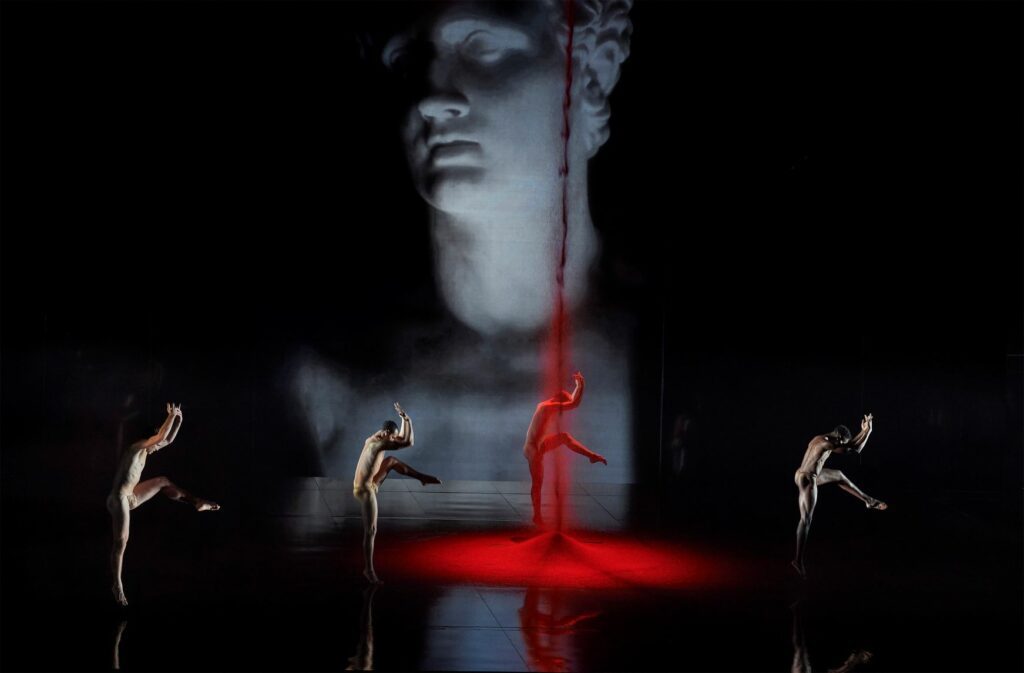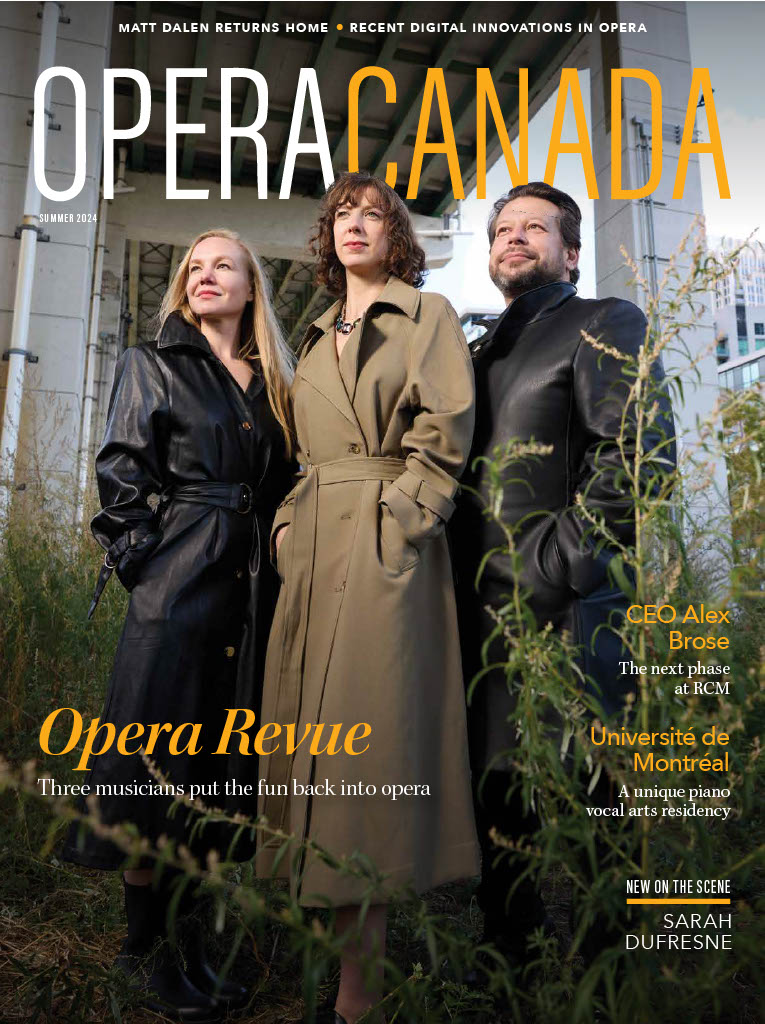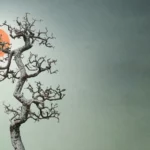“The Empire holds its breath, awaiting orders.” These lines, sung early in the Canadian Opera Company’s world premiere of Hadrian (seen Oct. 17th), plunge us immediately into the opera’s primary conflict of an emperor torn between his duty to lead and the mourning for his lost lover, Antinous, that consumes him. The opera draws its thematic power from being set in this moment of pause and transition, where legacies will be decided and future history made: the dawning of a new age and the decline of an existing one.
Of all the major characters, Plotina (Karita Mattila) and Turbo (David Leigh) are the most invested in ensuring the stability and continuation of a pantheistic Roman Empire. As the determined Plotina, Mattila sings with an appropriately commanding voice, effectively persuading Hadrian to crush the Jewish revolt. Both her and Turbo’s characterizations capture the coercion of those convinced in their authority and rightness.
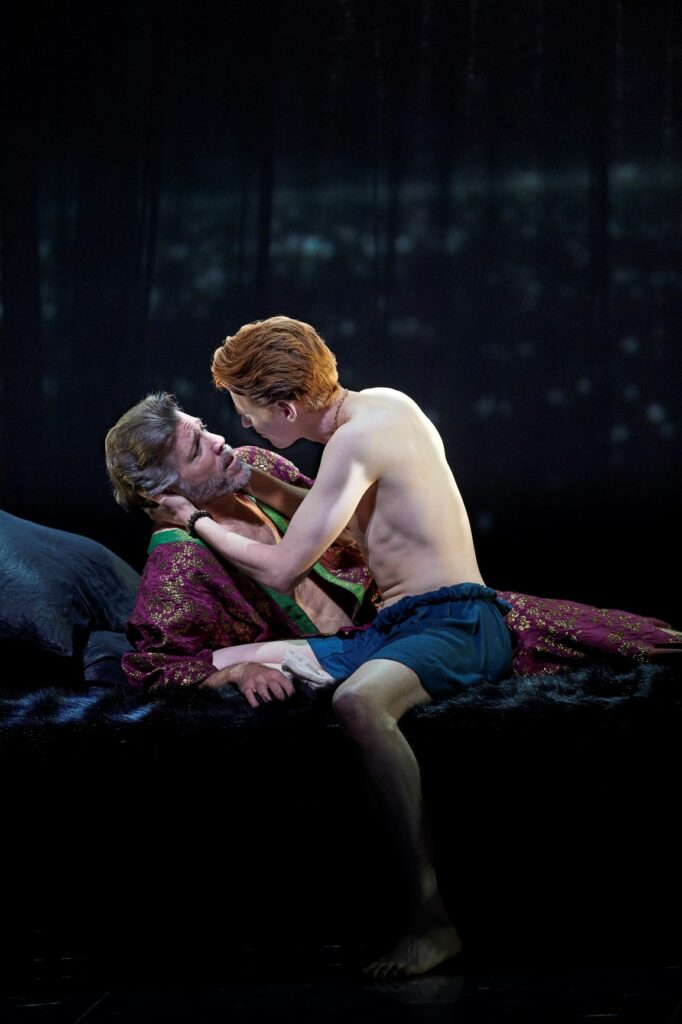
Thomas Hampson (Hadrian) and Isaiah Bell (Antinous) in the Canadian Opera Company’s Hadrian. Photo: Michael Cooper
Thomas Hampson is magnificent as Hadrian, bringing expressive depth and broken regality to the ailing emperor, caught between Turbo and Plotina’s counsel and a paralyzing grief over Antinous. He makes excellent use of the range given to his character: at the opera’s outset, Hadrian remains collapsed on the floor, singing only his lover’s name in a melancholic, exhausted voice (Act I sees Hampson singing for lengthy periods of time while seated, an affecting and demanding choice from director Peter Hinton). His grief—though often present—is never one-note, but layered. When he goes back in time to the night he first met Antinous, he is a man transformed, his voice rich and full of vigour.
If Hadrian is consumed and conflicted, Antinous is depicted by his detractors as the source of this strife: a distraction to Hadrian, from both his political and marital responsibilities (it is no coincidence that Antinous first enters the stage as Sabina, Hadrian’s wife, is exiting). Even the nature of their homosexual relationship is transgressive, Antinous being neither a slave nor quite a youth. Tenor Isaiah Bell has a beautifully clear, strong voice that refuses to play naïve boy to Hampson’s more mature emperor—the two are equals, and Bell rises to the challenge of matching Hampson’s expressivity. He shines in Act III while advocating for tolerance, in a section that uses queer love and imagery (“I am sword and scabbard”) as the basis for identification across cultural lines: “I am the Jew and the Nazarene”; “each in all, all in each.”
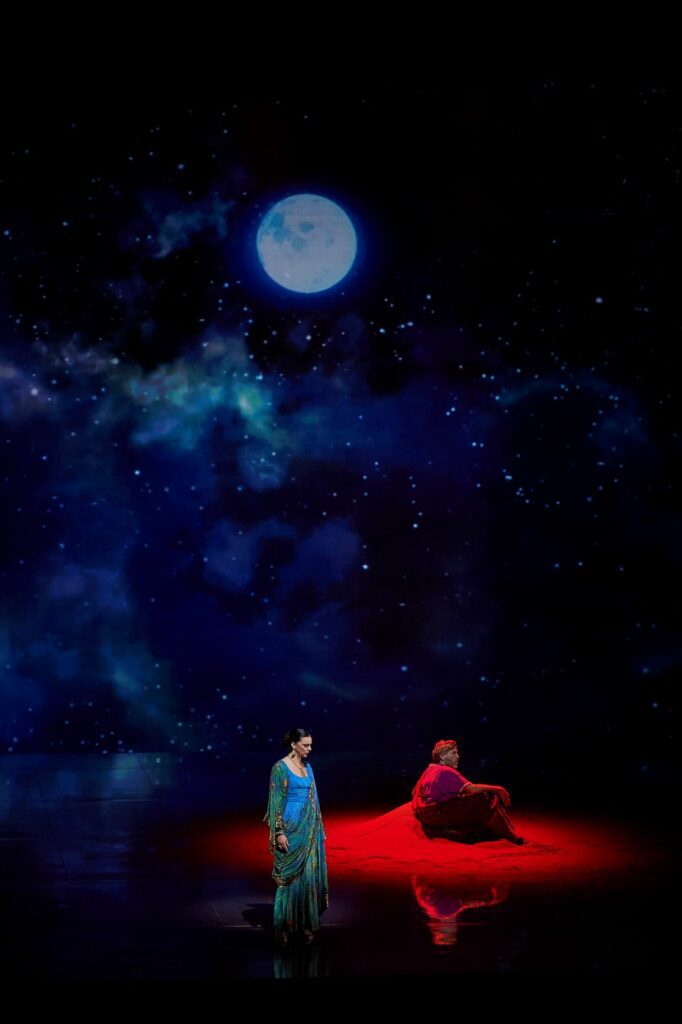
Ambur Braid (Sabina) and Thomas Hampson (Hadrian) in the Canadian Opera Company’s Hadrian. Photo: Michael Cooper.
As Hadrian’s long-suffering wife Sabina, Ambur Braid steals Act I with a gorgeous and heartbreaking aria, where she repeatedly begs to be seen and noticed by her husband, her voice pleading, escalating to a piercing, climactic high. And in Act III, when spying on a tender moment between her husband and Antinous, she repeats the phrase “he loves,” and with every repetition makes a new emotional interpretation possible: first suggesting her shock at his capacity to feel; then tentative acceptance of his love for another; and finally pain at this acknowledgement. The richness of her delivery of those two simple words is remarkable, and to her credit makes the following dialogue—which elaborates on this recognition—unnecessary.
Composer Rufus Wainwright makes use of the entire orchestra in a score that is often overly busy and frenetic, and which contributes to uneven pacing in certain scenes. These musical qualities also lead to a few moments when conductor Johannes Debus’s orchestra overwhelms the vocalists. Generally, the orchestration succeeds best when used more modestly to complement the singers’ voices or enhance the dramatic action onstage. The Act III overture is one of the most beautiful and memorable demonstrations of this, where Hadrian and Antinous come together in passionate embrace. Strings and gentle brass draw out the moment luxuriously, until the orchestra layers and builds to the thumping drums and twinkling chimes of orgasm.
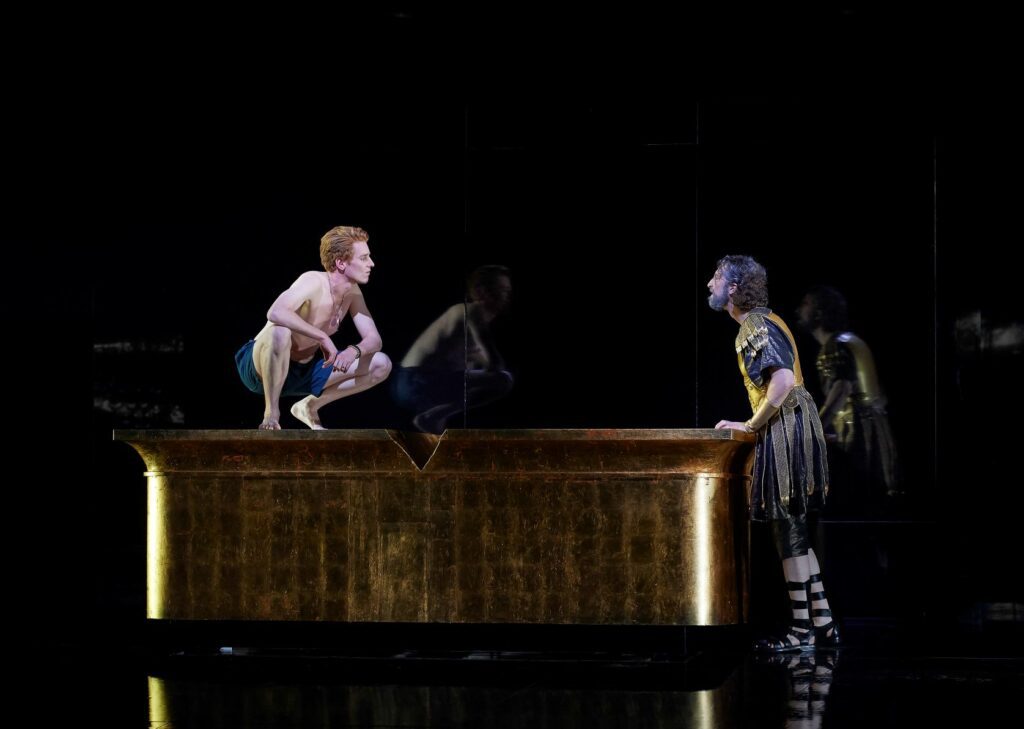
Isaiah Bell (Antinous) and David Leigh (Turbo) in the Canadian Opera Company’s Hadrian. Photo: Michael Cooper
The production design is particularly effective and creative in its use of projections. At one instance in Act I, Hadrian, Plotina, Trajan, the dancers, and Antinous’s tomb are all concentrated stage left, while a giant projection of a youthful statue, presumably a monument to Antinous, stands unobstructed, dominating stage right: a fitting externalization of Hadrian’s state of mind. In the transition between Act I and II, this projection crumbles into dust after red sand spills from the sky into a mound onstage, like an hourglass tracking the passage of time, or its reversal, as the muscled, nearly-nude dancers surround it. The symbolism is clear: even though Hadrian has been offered a chance to revisit the past, time moves only in one direction.
The opera’s conclusion expands on this feeling of material impermanence and the loss that accompanies it, with a stunningly dramatic end to the Roman age and the rise of the Abrahamic religions. Earlier in Act III, having been reunited with the memory of Antinous, Hadrian sings fondly of his palatial villa in Tibur. It represents a domestic queer space where their love can flourish—an impossibility after Antinous’s death and the end of the Roman Empire. Hadrian and Antinous’s relationship was, with the rise of monotheism, rendered unspeakable, blotted out for centuries. Tibur, that utopian place, never came to be, but Hadrian rescues and restores it, providing an important space for their story to exist.


